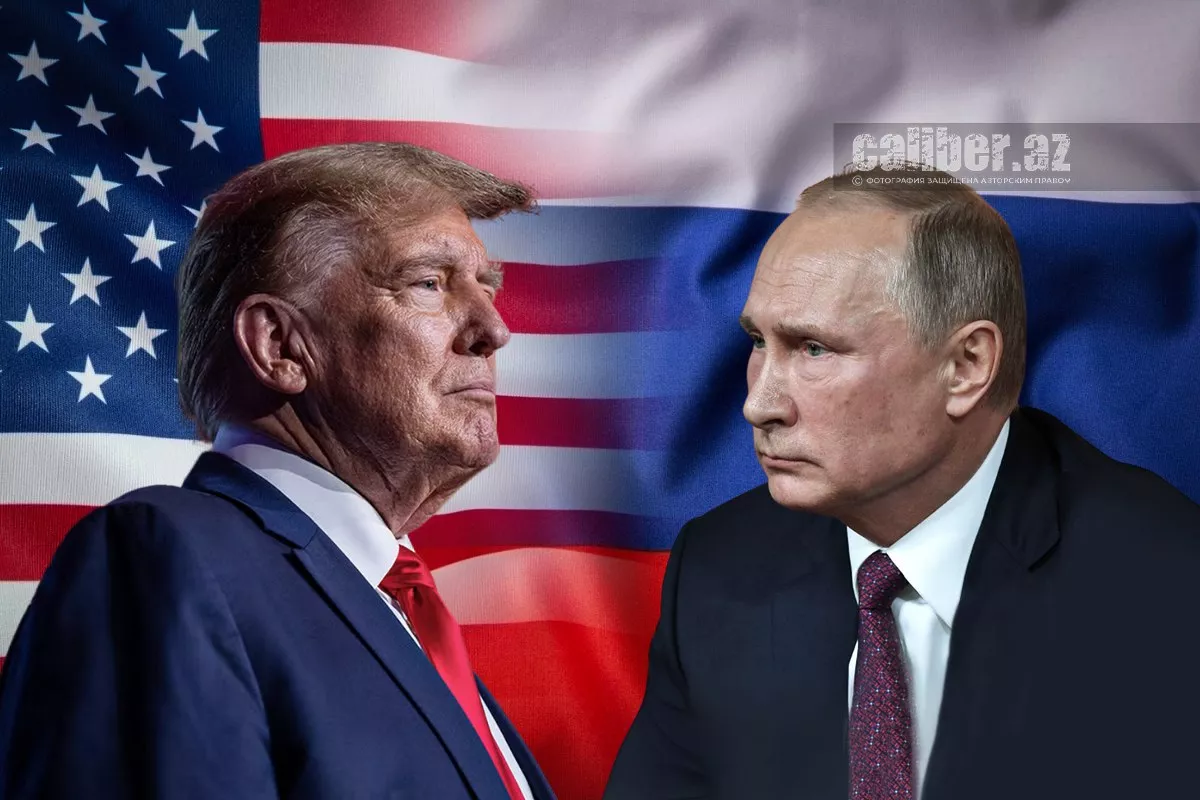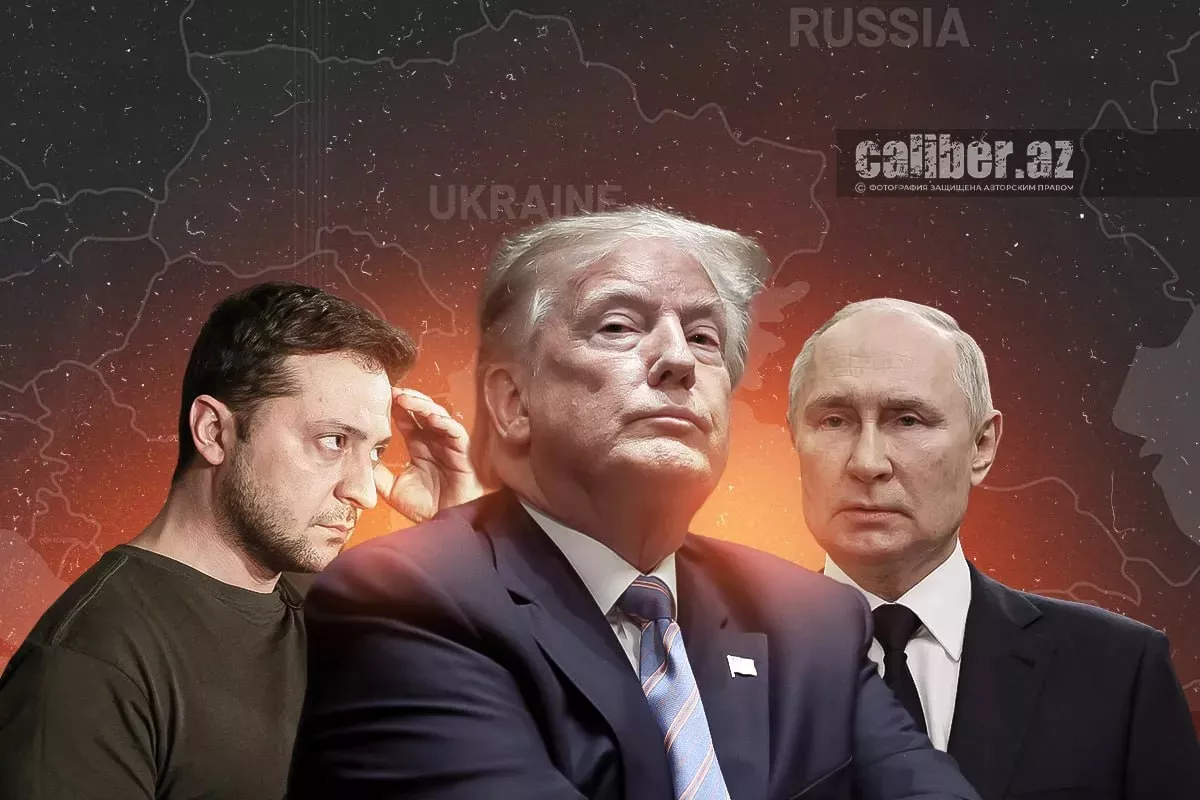Elusive compromise Trump-Putin meeting postponed
This week continues to bring interesting developments regarding the Russia–Ukraine war. Last week saw two significant events: a phone call between U.S. President Donald Trump and Russian President Vladimir Putin, and a meeting between the American leader and Ukrainian President Volodymyr Zelenskyy. In short, Trump agreed with Putin to hold a one-on-one meeting in the near future in Budapest, while he denied Zelenskyy the delivery of Tomahawk missiles.
According to American media, during the talks with Zelenskyy at the White House, Trump repeatedly interrupted his counterpart and used sharp language. Journalists report that he dismissed the map of potential Tomahawk targets presented by the Ukrainian delegation and insisted that Zelenskyy concede the entire Donbas region to Russia. Meanwhile, The Washington Post reported that Moscow is demanding the concession of the part of Donetsk Oblast still under Kyiv’s control, after which it is ready not only to freeze the conflict along the front line but even to withdraw troops from the already annexed territories of Zaporizhzhia and Kherson regions. This is an important detail. If accurate, it means Moscow has made yet another compromise compared to the position reported in the American press over the summer—back then, there was no talk of withdrawing troops from Kherson and Zaporizhzhia.
However, Zelenskyy’s response this time, as before, remained unchanged – no. This explains Trump’s anger. For him, such a “territorial exchange” seems like the best option. Yet it is clear that a person who agrees to surrender the Donbas could not only end their political career but also begin to seriously worry about their personal safety.
Following his meeting with the Ukrainian leader, Trump shared a post on his social media platform Truth Social, in which he suggested stopping the fighting along the front line. “They should stop where they are. Let both [Putin and Zelenskyy – Ed.] claim Victory, let History decide! No more shooting, no more Death, no more vast and unsustainable sums of money spent,” Trump wrote.

In Trump’s language, this means: I offered you the best possible deal, you refused, so don’t blame me. Europeans interpret it very differently. They seized the proposal to freeze the conflict as a pass and began pushing the ball toward the opposing goal—that is, Russia. Scholz, Macron, Starmer, and other European leaders, together with Zelenskyy, called for an end to the war along the current front line. “We strongly support President Trump’s position that the fighting should stop immediately, and that the current line of contact should be the starting point of negotiations. We remain committed to the principle that international borders must not be changed by force,” the statement said.
This is clearly an attempt to present Trump’s temporary and tactical withdrawal from mediation as some kind of ultimatum to Moscow. In addition, news came that Zelenskyy will visit London on October 24 to meet with a “coalition of the willing” to discuss (which number?) security guarantees for Ukraine.
Europe’s goal is this: if it cannot persuade the U.S. to help Ukraine with weapons, then at least it can use American leverage to pressure Moscow into a ceasefire and freezing the front line without meeting any of its demands.
Among commentators, it has become common to expect that Europeans would go to great lengths to block a Trump-Putin meeting in Budapest. On October 21, it became known that the anticipated summit between the U.S. and Russian presidents in the Hungarian capital had been postponed indefinitely. Trump stated that he does not want to hold a pointless meeting with Putin. When asked what changed his mind after the Thursday phone call with Putin and why he decided the Budapest summit would be a waste of time, he replied: “I didn't say anything. I didn't say it would. And, you know, you never know what's going to happen. But a lot of things are happening on that front, on the war front with Ukraine and Russia. And we’ll be notified over the next two days as to what we're doing.”
Supporters of the theory that Europe is either “correcting” or, conversely, “sabotaging” (depending on one’s preferences) immediately attributed Trump’s change of mood to the efforts of the “coalition of the willing.” However, the most logical interpretation is that the direct initiator of the Budapest meeting’s cancellation was the American president himself, and, moreover, this development was by no means unexpected for Moscow.
If one believes the leaks in the American media about a “territorial exchange,” then Moscow, faced with the threat of the U.S. supplying Tomahawk missiles to Kyiv, may have agreed to go as far as possible—withdraw from the occupied parts of Kherson and Zaporizhzhia regions. In return, it would require Kyiv’s signature on the concession of the entire Donbas. The “saving” of Donbas could then be presented to Russian society as the completion of a “sacred minimum task.” “Returning Donbas to its native harbour” – this is the formula around which other “ships” could be allowed to sail freely (at least until better times).

Interestingly, the withdrawal of Russian troops from Kherson and Zaporizhzhia would not, in itself, signify Moscow’s recognition of these territories as belonging to Kyiv. The troop withdrawal would be justified as a military-tactical necessity, taking into account factors such as the risk of nuclear war with the U.S. Here, again, the “Tomahawks” come into play—Moscow and Washington would be making a strategic deal to save the world, at least that’s how both sides would present the new agreement if Kyiv agreed.
Within this logic, one can assume that Trump and Putin had agreed: if Kyiv accepts this proposal, they would meet in Budapest to formalise the deal and, more broadly, a new European security system. If not, Russia would continue its offensive.
Washington, for its part, will make every effort to ensure that Russia’s ability to advance is exhausted as soon as possible—let us not forget that a swift end to the war is in Trump’s interest. He will continue to pressure buyers of Russian oil. And although the Tomahawks have played their role at this stage, that does not mean they won’t return in the next round of negotiations. Then they would turn from axes into boomerangs.
This raises the question: why announce the Budapest meeting to the world when there was no certainty it would actually take place? Perhaps it was to see how the Europeans would react and, more broadly, to provoke them into wasting precious energy with this false start. It seems that teasing the Old Continent has become a shared amusement for both the Russian and American sides.








